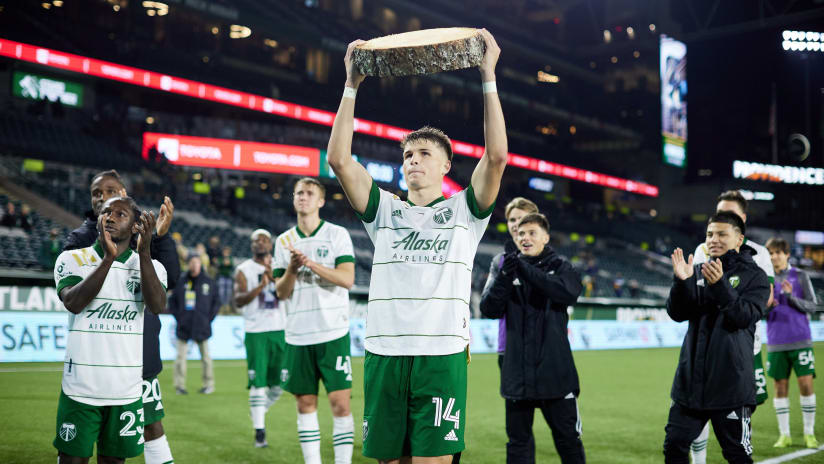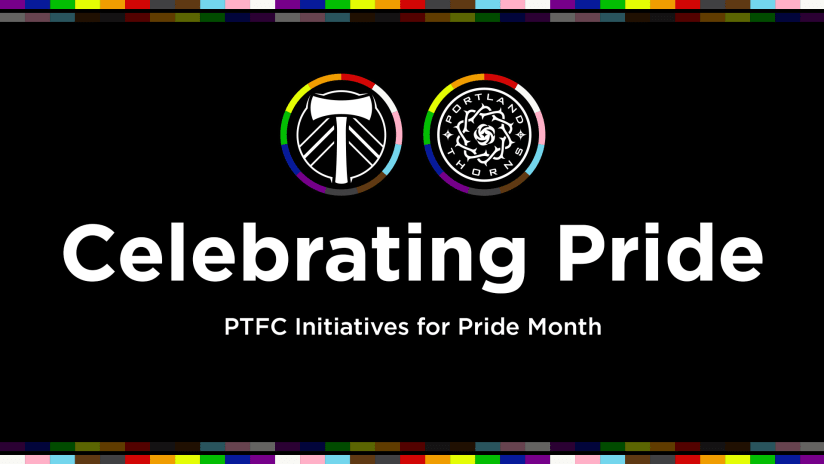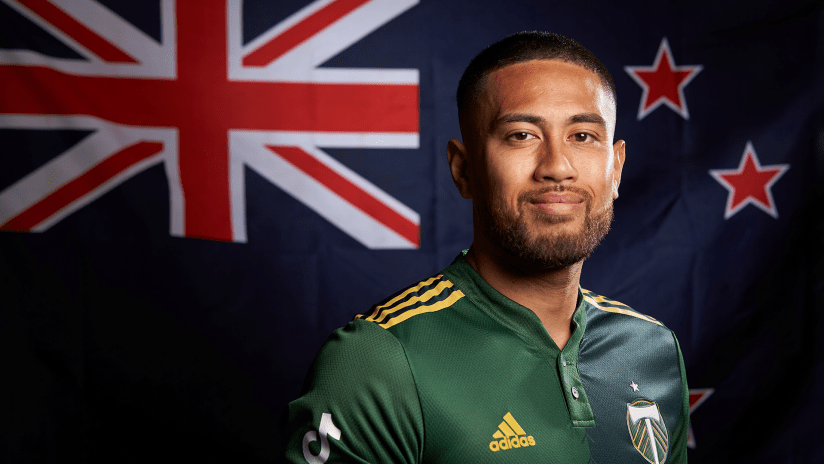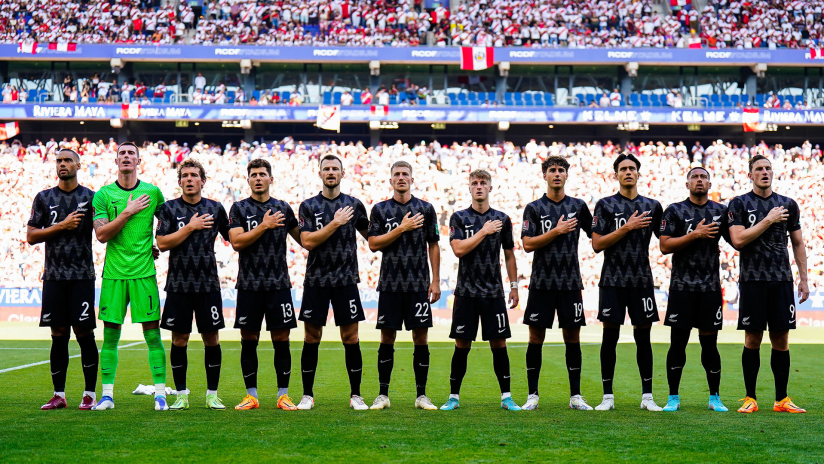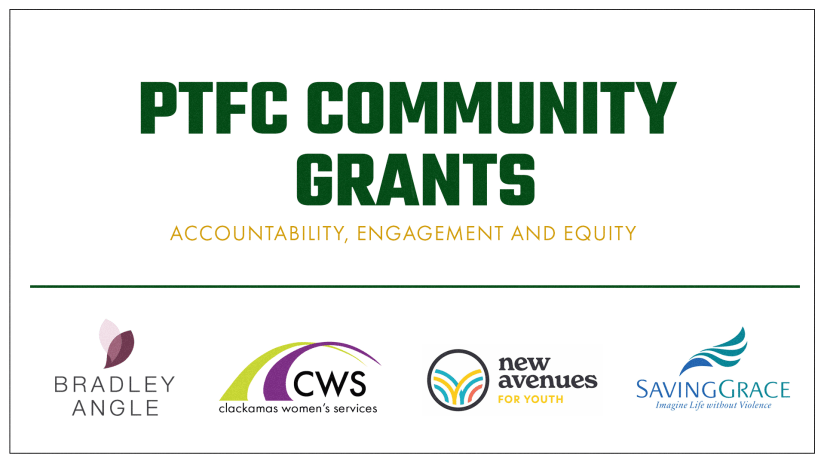Justin Rasmussen still remembers the moment as if it was yesterday.
“With the 27th pick, the Portland Timbers select from Grand Canyon University, Justin Rasmussen,” Timbers technical director Ned Grabavoy announced.
Sitting on his coach at home surrounded by over 50 of his closest friends and family, Rasmussen couldn’t contain the growing smile that creeped up his face. Born and raised in Las Vegas, while he didn’t get to ride in a boat past the Bellagio fountains a la the NFL Draft to shake MLS commissioner Don Garber’s hand, the 2022 MLS SuperDraft marked the start of his professional soccer dreams.
“That day replays in my head all the time,” Rasmussen said.
Not many players on the Timbers’ current roster have experienced that feeling. Just eight of the club’s 29 listed players played college soccer in some capacity, while everyone else signed professional contracts after turning 18 or even younger.
In a league that progressively sees fewer players pursue the college path, those who entered MLS out of a stateside university have different experiences to share. They know the unique challenges they face from day one but value their college soccer days. Whether learning how to be a professional or balancing life and school, playing the sport collegiately helped shape them in different ways than their peers who jumped to the pros immediately and they don’t regret making the decision at all.
“Getting drafted is an accomplishment in itself,” Rasmussen said. “But at the end of the day it doesn’t mean too much because I still had to come up here and prove myself.”
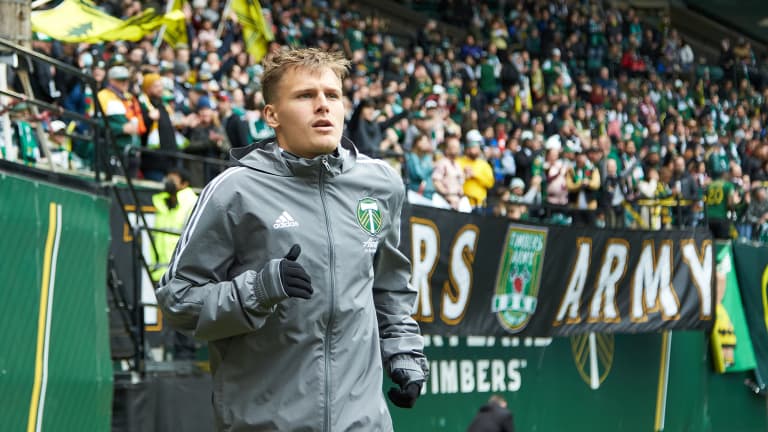
Unlike Rasmussen, Blake Bodily was never officially drafted; there was no pomp and circumstance. Instead, while with his girlfriend, he received a call from his agent saying that Portland was going to sign him to a Homegrown contract and to prepare to fill out some paperwork.
“It definitely wasn’t a big party or extravaganza, but it was still a special moment,” Bodily said. “I still remember it to this day.”
Bodily played with the Timbers Academy while attending Tigard High School which meant he was already in the Timbers system and did not go into the SuperDraft. However, like Rasmussen did for Grand Canyon University, Bodily did play multiple seasons of college soccer at the University of Washington.
While he initially hoped to sign a professional contract before going to school, Bodily didn’t mind taking the college route and ultimately thrived as a Husky, with a 2019 campaign that saw him help Washington to a Pac-12 championship as well as being named the 2019 Pac-12 Player of the Year and receiving United Soccer Coaches First-Team All-American honors.
Rasmussen, however, always had his sights set on college. He started playing youth soccer at the age of four and transitioned to a club setup at eight. With no club-run academies in the area, he could have followed in the footsteps of Bodily or a couple of friends who moved to Seattle and Salt Lake City to play in professional setups, but Rasmussen decided to attend Bishop Gorman High School in Las Vegas, where he entered his senior year as one of the top players in his age group.
“Growing up, there were no academies or anything,” Rasmussen said. “College was the only in sight for me, but I wouldn’t trade the experience for anything.”
Both Rasmussen and Bodily speak fondly of their time in college, where they embraced a different experience than those who went pro at a young age. In school, athletes learn and practice the importance of time management, such as balancing academics, practice, social life and sleep. Rasmussen mentioned how he matured into his own person during his time at GCU, which helped with his adjustment to Portland off the field.
Bodily pointed out the increased amount, and intensity level, of weight training in the college game compared to the pros. When out of season in the spring, Washington’s soccer team would spend days lifting weights.
The shorter college seasons also allow players a designated time to work on individual skills, such as improving off-ball movement and finishing, that is sometimes difficult to do when preparing for new opponents each week at the pro level.
And then there are the unique aspects of the college experience that set it apart, such as spending time with friends, working toward a degree for the future, complaining about the courses of said degree and bonding with teammates of a similar age; things that draw young, talented athletes to a university in the first place.
“The biggest thing my mom would tell me was that when you’re going to pick a school, make sure you like the school for everything other than soccer,” Rasmussen said. “That was an important point because I saw a lot of guys transfer, quit or just be unhappy with whatever the case may be. So Grand Canyon spoke to me most and really felt like home.”
For Bodily, memories such as winning the Pac-12 and the subsequent celebrations with teammates won’t fade anytime soon. He experienced both worlds, playing with the Timbers Academy during high school and then spending multiple years in college. During that time, he had experiences that players who went pro early just don’t get.
“The friends you make are friends for life,” Bodily said. “You can put in as much as you want to get out both academically and soccer-wise. I loved it and I wouldn’t take it back if I could.”
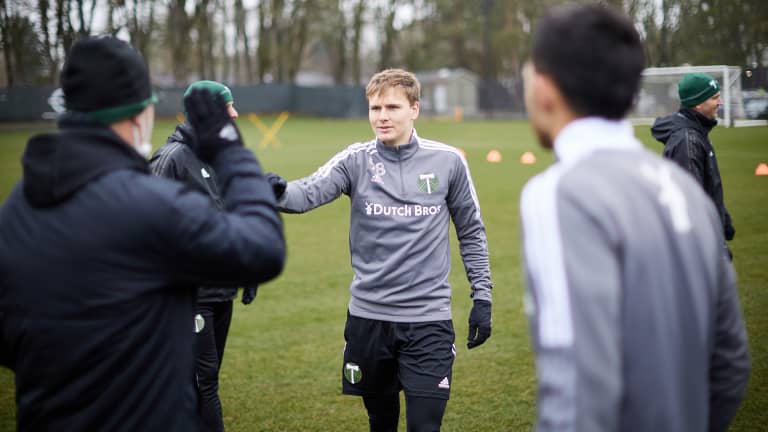
There’s sometimes a stereotype in American men’s soccer for players who choose to attend college: If they aren’t offered, or don’t sign a professional contract and instead elect to go to college, they simply aren’t good enough to go pro.
College players know the stereotype is there and it serves as a chip on their shoulder they train with every day. Fair or not, they must prove themselves even more in a global sport where the average player age is growing younger by the year.
In reality, college soccer is its own experience with its own set of pros and cons. Looking back at Timbers players who attended college, past and present, there is a growing list of players who played pivotal roles in deep playoffs runs. Former goalkeeper Steve Clark (Oakland University), forward Jeremy Ebobisse (Duke University), current Timber Eryk Williamson (University of Maryland) as well as midfielder George Fochive (University of Connecticut), for example, all played soccer in some capacity at a university.
“You look at guys like Darlington Nagbe who played at Akron and won a national championship there, look where he’s at now,” Bodily said. “Guys like Daryl Dike who is in the [English] Championship now, he played at Virginia. I feel like the stereotype is there, but it’s not fair in my opinion because you can learn so much in college and grow so much as a person and player.”
Now, both young players can’t help but chuckle when they occasionally field questions from teammates about the college experience and game.
“It’s funny how many [teammates] don’t understand the process of college,” Rasmussen said. “They ask me how it works, how long the seasons are, but for me college is all that I know, a stepping stone to get to the professional level.”
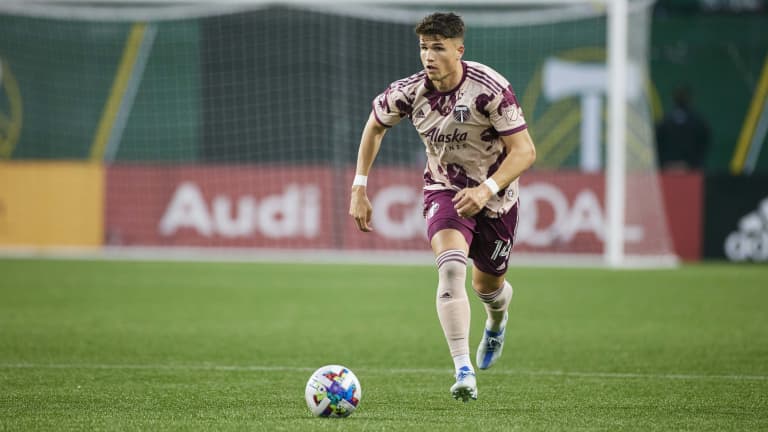
While he played in some lively games in college at GCU, nothing could have prepared Rasmussen for the experience of starting his first MLS game. The Timbers played Austin FC that day and won 1-0, their first victory of the regular season.
When Rasmussen thinks back to that evening, he goes back to the day’s little moments, such as walking out for the national anthem in front of his parents and seeing fans toss their scarves in the air.
“The vibration from the fans that ripple onto the field and you feel it in you,” Rasmussen said.
Helping the Timbers secure a shutout against a red-hot Austin side, the rookie remembers being at his apartment with his parents after the game, sitting down and processing the previous few hours.
“We’re all just sitting [in my living room] and staring at the ground, thinking ‘oh my gosh, I just started an MLS game,’” Rasmussen said. “We just sat there and enjoyed it in silence, which was a blissful and really cool moment.”
Bodily has similar sentiments about his first start for the club in front of fans, which came at Providence Park against Houston in 2021. The feeling of playing in front of a large crowd, especially after spending several years in the club’s youth system, is one he won’t forget.
Moments such as their first starts in front of full crowds make it easy to reflect on their time in college and how it prepared them for where they are now. Both Rasmussen and Bodily will always be grateful for their time in college, where they received a valuable experience they wouldn’t have gotten if they had gone pro immediately. Now, they hope to leverage that experience on and off the field as they fight for roles on the Timbers.
“I went to school and loved it,” Bodily said. “I couldn’t ask for anything more there, I loved everything about it.”

